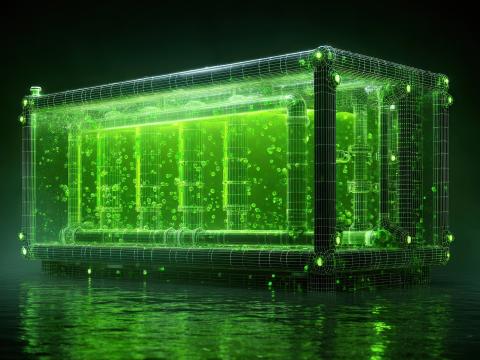Technology Is Neither Bottleneck Nor Solution
This is my take on the AFCEA, Northcom and George Mason University conference on "Inter-agency, Allied and Coalition Information Sharing," which was covered on SIGNAL Scape last week. No, we still can't connect the dots as well as hoped and never will, but conferees agreed that what matters most is the thoughtful and trusting use that humans could make of what information manages to flow through IT systems, however improperly they may be connected.
This is my take on the AFCEA, Northcom and George Mason University conference on "Inter-agency, Allied and Coalition Information Sharing," which was covered on SIGNAL Scape last week.
No, we still can't connect the dots as well as hoped and never will, but conferees agreed that what matters most is the thoughtful and trusting use that humans could make of what information manages to flow through IT systems, however improperly they may be connected. Technology is neither the roadblock nor the solution to building an information sharing network.
Warfighters in conventional wars knew their expectations for information never would be fulfilled and that no plan survives first contact with the enemy. So they accepted the "fog of war," switched to Plan B, realistically assessed residual risk and accepted the 80% solution.
Practitioners of this new form of warfare-be it unconventional, irregular, unrestricted, asymmetric, COIN, counter terrorism, whatever-who seek also to better serve the warfighter, should accept the inevitable fog (inadequate IA, lack of trust, et al.) and differentiate between desires of the warfighter-about which much was said in this conference-and their actual needs-about which little was said.
Technology didn't connect the dots in 9/11-or Pearl Harbor either-nor is it likely to predict the next national emergency. The greatest challenge to providing predictive, exploitable information in this new type of war will be coping with existential culture and the human behavior that it nurtures. And the new architectures will vary widely by mission.
To that end the label "national security" is not helpful. National security is not an enterprise. It is goal to be reached only through embracing a host of the dissimilar enterprises of agencies, allies and non-traditional partners. All of these enterprises are driven by unique cultures, processes and norms, and enforced by instincts of institutional survival.
The term "command and control" (C2) is not helpful when applied to the search for this new national security apparatus. The study reported by Dr. David Alberts (and reported on here) reveals a fundamental disconnect between how we organize for and practice management today and the new "complex endeavor challenges of the 21st Century.
What passes as acceptable practice in conventional war-where unity of command and centralized control is given-differs dramatically when allies are involved. C2 rarely applies to coalition operations and becomes an oxymoron in humanitarian efforts, stabilization and national-building-all of which now fill the platter labeled national security. Perhaps, said one senior participant in the closing Town Hall session, it is time to face reality, accept a bottom-up approach and let user needs drive information sharing policy.
If today's Internet is beyond technical repair -and not all conferees agreed that it is-does Web 2.0 promise relief? Will social software (informal, inter-personal, ad-hoc networks) be allowed to play? The digital natives from the 20-something generation are coming aboard with soaring expectations of unlimited collaboration and sharing, but their employers don't necessarily share these views and will resist. It is one thing to preach the need to share rather than shield information, but information is power and that source of power will be zealously protected. Also, the Facebook generation may find their expectations tempered by organizational dictates for reward and promotion.
Finally, if the individual is the ultimate solution, is this not the same cohort who's insensitivity to information security has put national security at risk? But, that's the theme of the another SOLUTIONS series event, later this year.




Comment
Given the authority to link
Comments